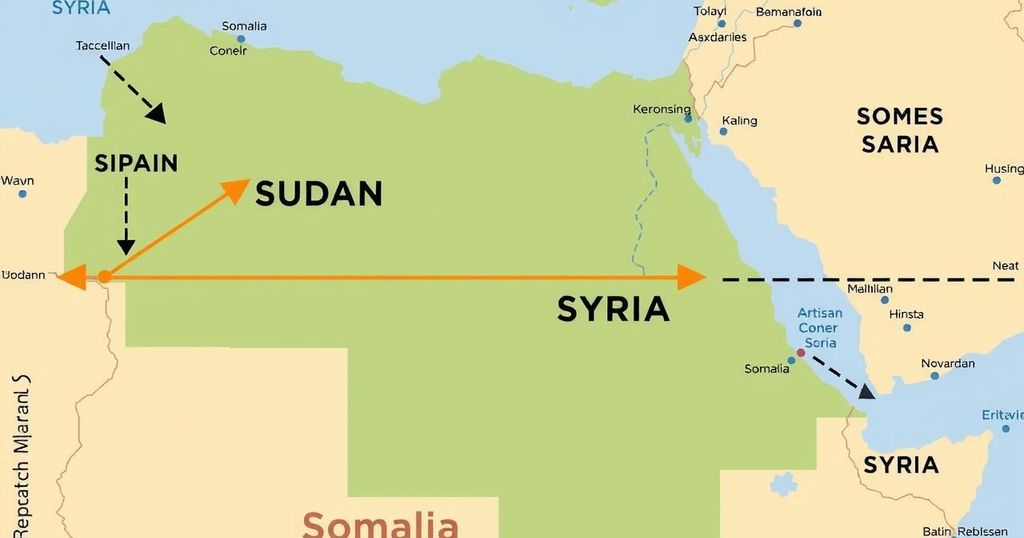The U.S. and Israel are considering Sudan, Somalia, and Syria to resettle Gazans. President Trump asserted no forced expulsion will occur, framing resettlement as humanitarian. Responses from these countries are largely negative, and the idea has prompted international criticism, with allegations of ethnic cleansing. The situation remains complex amid regional instability and ongoing military actions in Syria.
The U.S. and Israel have approached Sudan, Somalia, and Syria as potential locations for the resettlement of Palestinians from Gaza, according to sources familiar with the situation. This initiative appears to be part of a broader objective by the Trump administration to end the conflict with Hamas and tackle the devastation in Gaza.
At a recent press conference, President Trump emphasized that there would be no forced expulsion of Palestinians, seeking to clarify controversial remarks made earlier. He proposed that other humanitarian countries could assist in relocating Palestinians to help facilitate recovery and rebuilding in the region.
Diplomatic communications have reportedly taken place between Israeli and U.S. officials and the governments of Sudan and Somalia. Some Israeli officials have urged for Palestinian migration from Gaza, which aligns with Trump’s sentiments on resettlement. Meanwhile, attempts at dialogue with Syria’s interim government have been made.
However, responses from Sudan and Somalia have been non-committal; Somalia’s ambassador to the U.S. denied any official approach regarding resettlement plans. Sudan is currently facing civil unrest and a humanitarian crisis, while Somalia continues to grapple with instability due to militant groups like Al-Shabaab.
President Trump has implied that those who leave Gaza might not return, deeming the area uninhabitable for the foreseeable future. Citing significant destruction in Gaza, he has suggested creating safe communities elsewhere in the Middle East for the displaced population.
International reaction has been swift, with numerous Arab governments and organizations denouncing the idea of forcibly relocating Gaza’s inhabitants, interpreting it as a form of ethnic cleansing. In contrast, the Arab leaders have advocated for a reconstruction plan for Gaza proposed by Egypt, which has been dismissed by the Trump administration.
The situation in Syria adds another layer, as the new interim government has condemned Trump’s resettlement proposals. Critics argue that the U.S. should engage more directly with the Syrian leadership to mitigate regional tensions and prevent Iran from extending its influence.
As tensions escalate, Israel continues to perform military operations in Syria. The U.S. State Department remains focused on negotiations involving ceasefire agreements, with officials asserting that discussions about Palestinian resettlement options are ongoing.
The plight of millions of displaced Palestinians already residing in surrounding countries highlights the complexities involved in the potential relocation efforts. There are growing concerns regarding the motivations of Israeli officials advocating for resettlement which may tie into broader geopolitical interests.
Recent reports confirmed that the U.S. and Israel had initiated contact with multiple potential host countries and short-listed locations for the transformation of Gaza’s population.
Overall, the situation remains fluid, with ongoing discussions surrounding the feasibility and ethical considerations of resettling Palestinians.
The U.S. and Israel are exploring potential resettlement options for Gazans in Sudan, Somalia, and Syria, as part of efforts to address the ongoing humanitarian crisis. Resistance from local governments and international condemnation suggests significant backlash against such proposals, emphasizing the complexities involved. Global responses highlight ethical concerns over the implications of relocating a displaced population and raise questions about political motivations behind the resettlement dialogue.
Original Source: www.cbsnews.com






